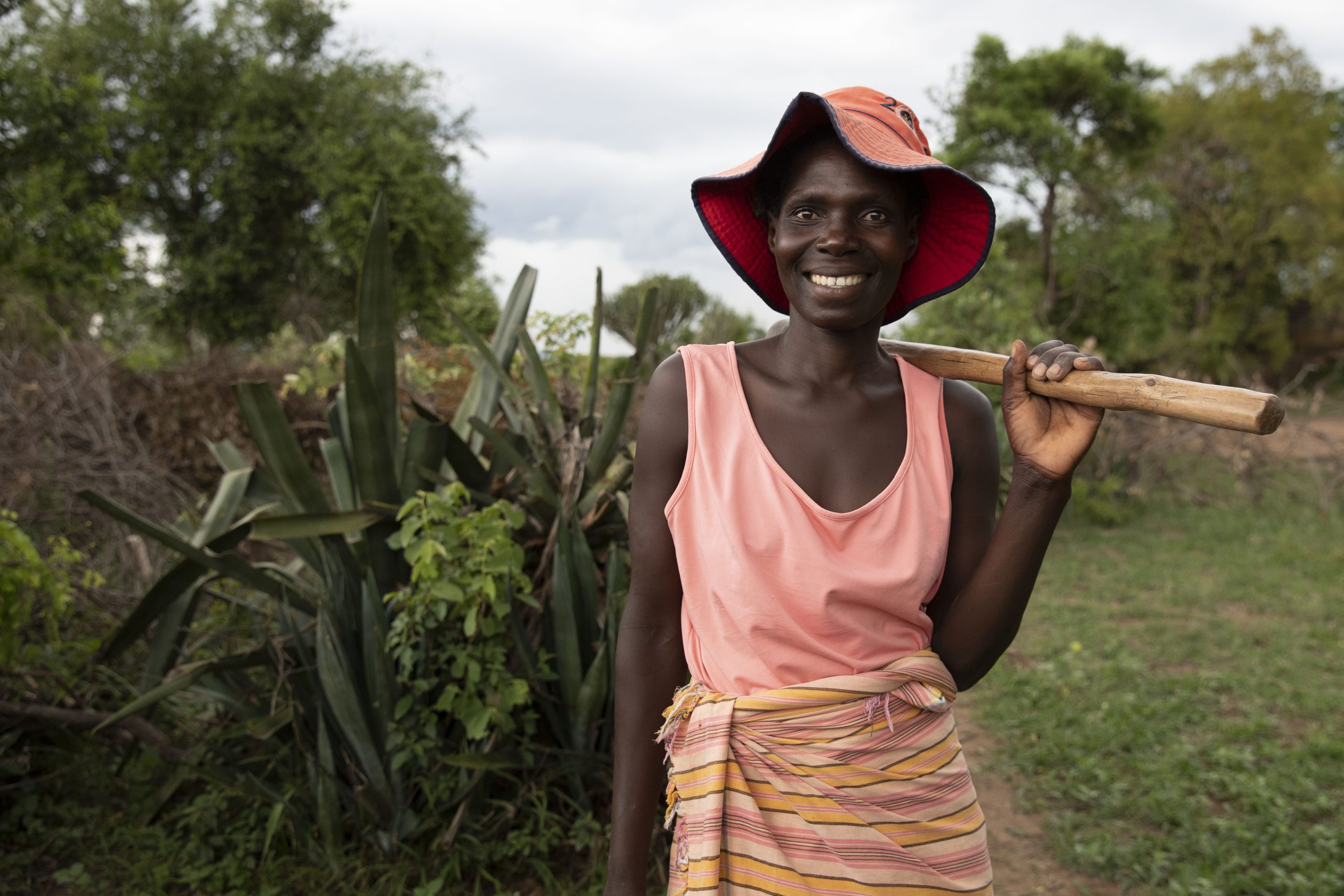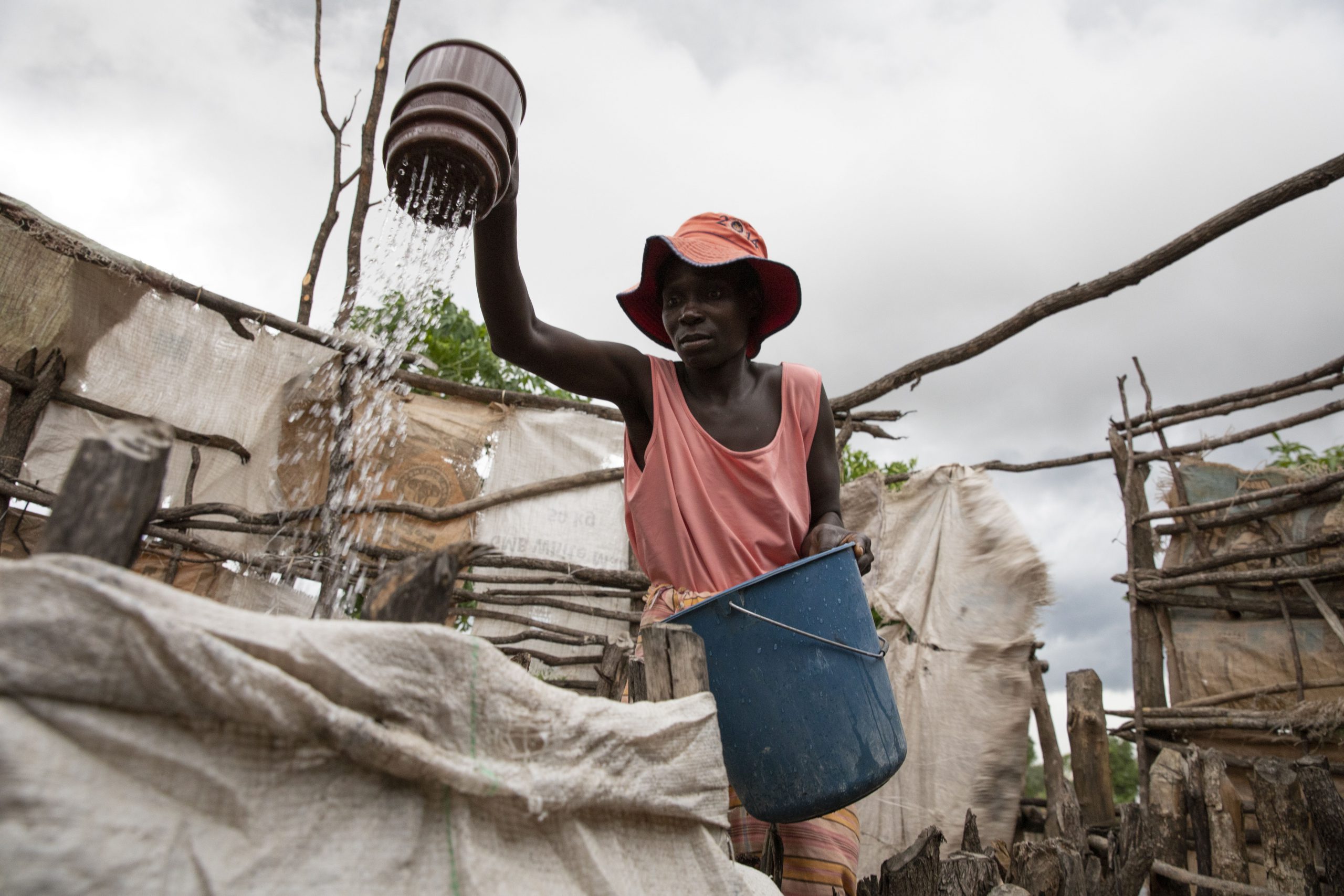The UN has reminded us that the climate crisis is the biggest threat facing humanity over the long term. According to the World Food Programme, 270 million people are nearing the brink of starvation and now, the impact of the COVID-19 pandemic and the climate crisis are exasperating hunger globally.
This week, as we mark International Day for Disaster Risk Reduction as well as World Food Day, the strength of our large network of volunteers across the Red Cross Red Crescent Movement and the role that they have to play in tackling these multiple crises, is really put into perspective.
Come ‘rain or shine’, these local volunteers, embedded in their communities, are there to encourage people to take action to protect themselves and strengthen their resilience, helping to reduce the risks of disasters and their impact on people’s life and livelihoods.
The role of local actors
The best way to motivate people is often to start small with easy actions that have tangible benefits.
Tarisai, a single mother-of-four in Mwenezi Zimbabwe can tell her own story about the increasingly unpredictability of ‘rain or shine’: “The changes in the weather make it difficult to get adequate food,” says Tarisai, a subsistence farmer herself. “The rain patterns have been inconsistent. The rain patterns are worrying us because the rains are not coming at the time they are supposed to come. To get enough food without the rains is close to impossible,” she said.
©British Red Cross/Jordi Matas
In a small way, even after years of working in this field, I feel I now know a little better how Tarisai feels as COVID-19 lockdowns have confined us to our homes, disrupted supply chains, and reduced people’s income, many have had to turn to growing their own food, creating homestead gardens or localized farm.
While I am just a new amateur gardener who tried to grow some herbs and berries in my backyard, I felt the frustration when many of my plants and vegetables withered away in an unusual heatwave this summer. My little experiment is a micro example of the reality for millions of people globally.
Moving towards local action and innovative change
To adapt to the changing climate, Red Cross Red Crescent volunteers can promote many simple actions in their communities. We have documented the best tried and tested Easy Volunteer Action in a handbook for supporting disaster prone communities with food security and livelihoods activities. This handbook describes 12 activities that Red Cross and Red Crescent volunteers can easily carry out by themselves using resources already available in the community.
Each activity has been carefully selected to increase the ability of people to produce more food and income and to stay safe and healthy in areas where there are challenges such as droughts and floods and other hazards related to changing climate. Most of the activities in the handbook will be very useful right now for households facing the secondary impacts of COVID19.
With encouragement from the local Red Cross volunteers, Tarisai has already tried some of the actions. She installed a keyhole garden beside her home a few years ago. “The Red Cross realised that we had problems accessing our fields that we used to plant our vegetables so they helped me to set up a garden close to my homestead where I can grow vegetables and use water I use for washing dishes to water the garden.”
The organic filter in the centre of the gardens allows her to use water from washing that she would otherwise throw away to grow vegetables to supplement an otherwise basic diet of sazda, a staple made from maize and lacking vital nutrients. The garden is constructed from layers of compost, manure and ash so is more productive than most home gardens and very efficient at retaining precious water. “The garden allows me to have access to fresh vegetables throughout the year. I was able to sell tomatoes, and spinach.”
Seeking change
Dated systems that only focus on relief after a disaster has hit must be adapted, changed and innovated so that longer-term interventions that help communities withstand emergencies and recover quickly become the norm. This pandemic has shown the importance of tracking global risks and testing how prepared we are to deal with them and lessen their impact. But in order for such interventions to be successful, the role of local actors and volunteers must be championed, now more than ever.
Neither the climate threat, nor the Covid-19 pandemic will be solved overnight, but these crises do threaten to reverse decades of humanitarian and development work to eradicate poverty and hunger, unless we not only commit, but also invest in real change and local action, now.
©British Red Cross/Jordi Matas
You can download the full handbook or the specific section you are interested here.


0 Comments
Trackbacks/Pingbacks